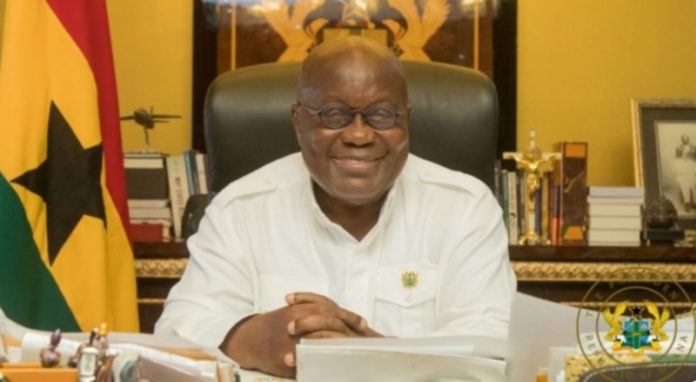
President Nana Addo Dankwa Akufo-Addo has challenged Ghanaians to continue to work to create the platform for the evolution of a new Ghanaian civilisation.
That, he said, would give true meaning to the foundational values of freedom and justice “on which our nation was birthed”.
President Akufo-Addo stated this in a nationwide broadcast on the eve of the 30th anniversary celebration of the Fourth Republic at the Jubilee House in Accra Friday.
Milestone
The President described the milestone as a great credit to Ghanaians, saying “30 years ago, all of us resolved to build, under God, a united nation, grounded in democratic values and the rule of law”.
“We have advanced a great deal in realising this vision, and I am confident that with a spirit of fairness, hard work, integrity and reconciliation, the best days of Mother Ghana lie ahead of us,” he assured.
Economic challenges
President Akufo-Addo indicated that although the nation was confronted with difficulties in its economic performance, “I do not doubt our collective resolve to work our way out of these challenges, and put our nation back onto the path of progress and prosperity”.
Safeguard
He, therefore, urged Ghanaians to do everything within their means to safeguard the country’s 30-year-old democratic process.
He explained that Ghanaians did not have to look far back into history to see that stable period of constitutional government and intelligent management of the economy lead to prosperity.
He said out of duty to the children, grandchildren and generations yet unborn, his government would not give up in deepening the democracy and guaranteeing the integrity of the electoral process, and stressed that the citizenry should not do so either.
Elections
President Akufo-Addo noted that the strength of any democracy was determined by the credibility of its electoral process, and respect for the will of the people, saying:
“We cannot overlook the fact that instability has followed disputed elections in many parts of the African continent”.
President Akufo-Addo said it was for that reason that Ghanaians must continue to urge the Electoral Commission to ensure that all stakeholders in the electoral process did not have lingering questions about the legitimacy of an election.
“On the two occasions in which disputes have arisen over the results of presidential elections, happily it was in the court, and not on the streets, that the issues were satisfactorily resolved,” he added.
The President also noted that the country had come a long way which and should not be taken for granted that everybody in Ghana has accepted democracy as the preferred mode of governance.
“There are those who would rather have authoritarian rule, because they claim our country is underdeveloped and democracy is cumbersome, and we need to get things done in a hurry. We still have some work to do to convince such people that we are all safer under democracies,” he stated.
Fighting corruption
President Akufo-Addo, however, indicated that as the country strove to prolong the democratic journey, it was imperative to enhance transparency and accountability in the governance structures, and build strong institutions that could fight corruption and the dissipation of public funds.
He said his government had undertaken, arguably, the boldest initiatives since independence to reform and strengthen the capacity of the institutions to tackle corruption in the public sector.
That, President Akufo-Addo indicated, included the financial empowerment of the anti-corruption bodies, the passage of the Right to Information Act, and the establishment of the Office of the Special Prosecutor, an independent, non-partisan body, with the relevant professional capability and exclusive mandate to investigate and prosecute acts of corruption.
Beacon of democracy
President Akufo-Addo said Ghana was considered a beacon of democracy and stability in Africa, where respect for the principles of democratic accountability, human rights and the rule of law have enabled the country to oversee eight presidential elections in the Fourth Republic, with five presidential transitions, and three peaceful transfers of power through the ballot box, from one party to another. “We have every right to be proud of this, and the celebration of the 30th anniversary of the Fourth Republic should inspire us, even further, to hold on to this status,” the President stated.
Background
On April 28, 1992, Ghana in a referendum approved a new constitution, ushering in the Fourth Republican dispensation.
More than 3.4 million people voted in favour of the new constitution, representing 92.59 per cent of those who took part in the referendum, with 272,855 people, representing 7.41 per cent of the persons, voting against constitutional rule.
The Constitution of the Fourth Republic set up the institutions of a liberal democratic state, operating on the basis of the separation of powers, with express guarantees of fundamental human rights.
Today, therefore, marks exactly 30 years since the first President, Jerry John Rawlings, elected under the 1992 Constitution, was sworn into office on January 7, 1993, as the first President in the Fourth Republic.
Listen to a playback of President Akufo-Addo’s address:

